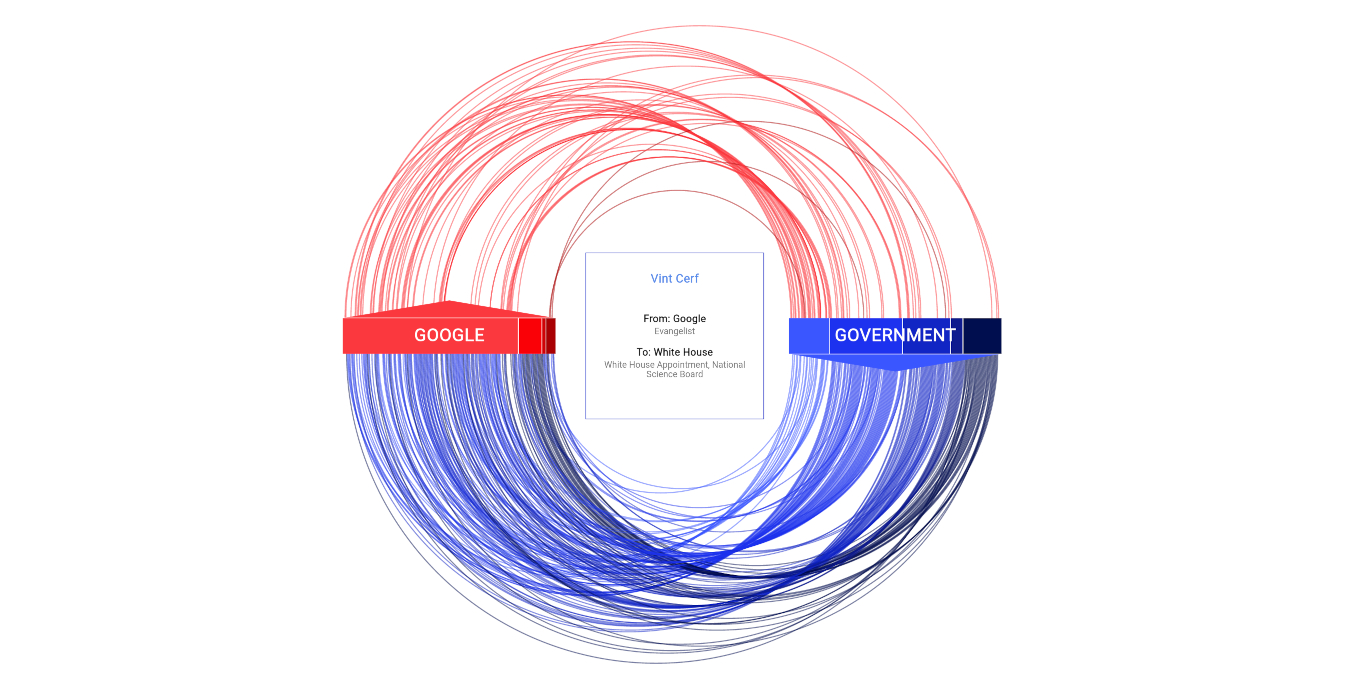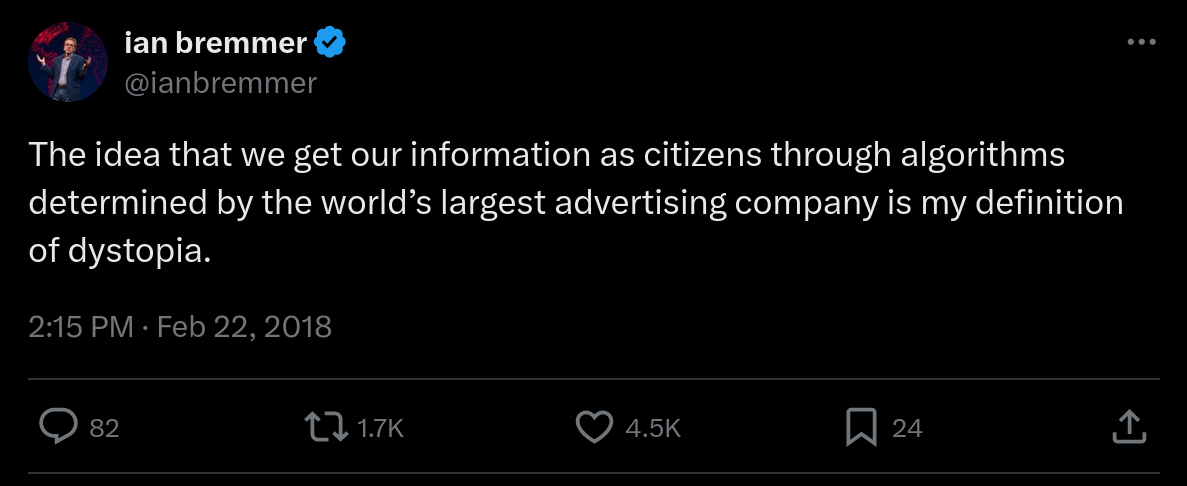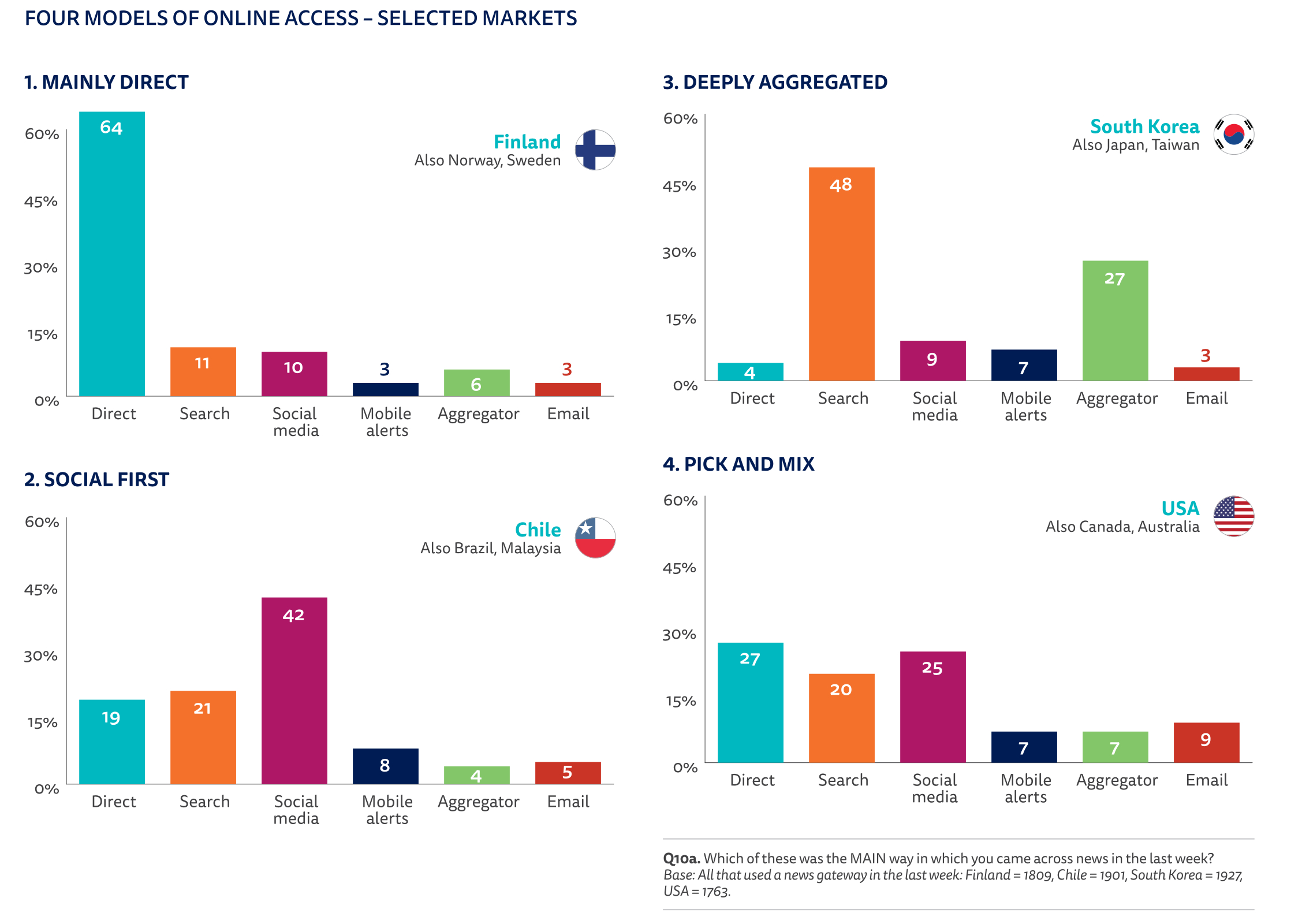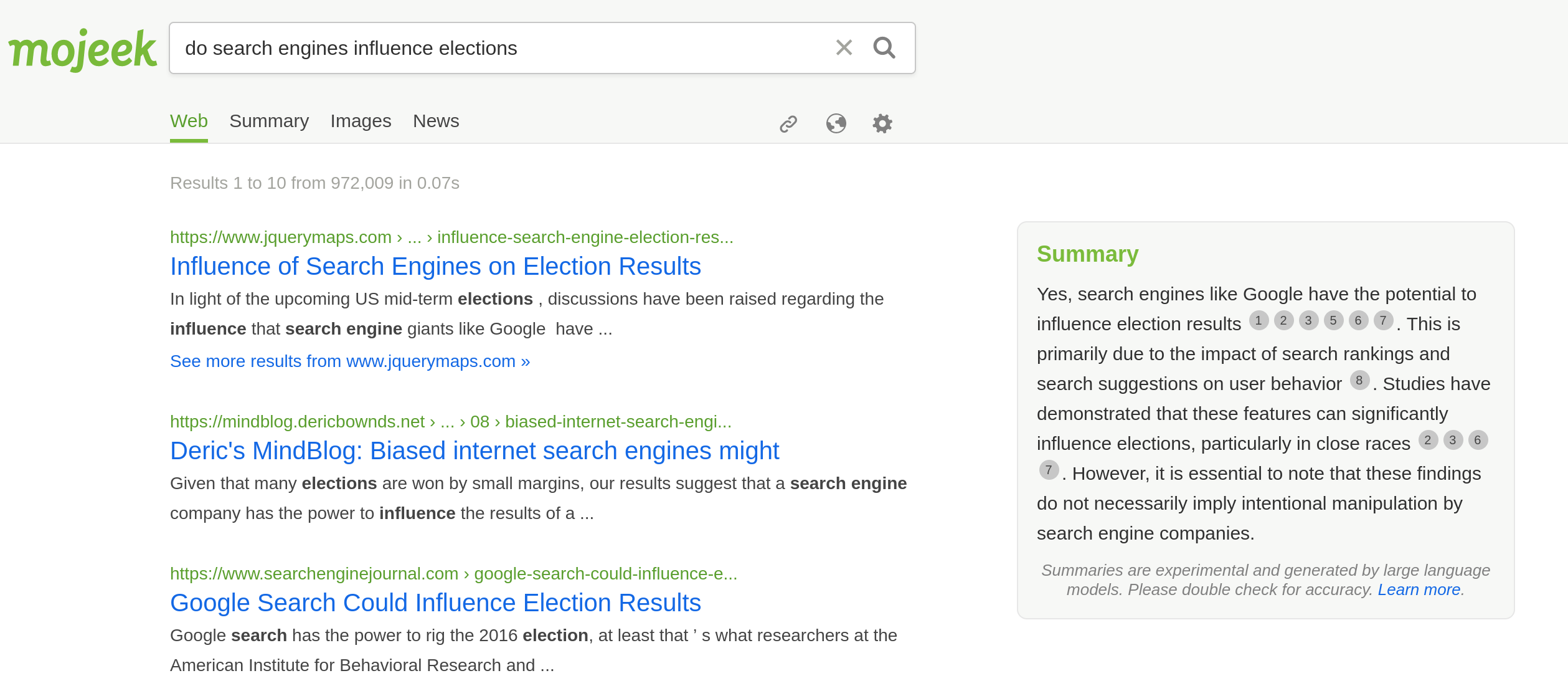It's The Information, Stupid

Sir Francis Bacon in 1597 wrote “ipsa scientia potestas est," which is often translated to "knowledge itself is power." He has since thus been credited with the better known expression "information is power".
In the 21st century, more and more people are realising that power seeks control over information, with the internet as the pivotal arena. Governments, media organisations and educational institutions have long been the controllers of information, but nowadays the biggest controller of all is technology companies. These entities work together far more than most realise. The revolving door is no doubt doing its thing, and not just in the USA.

The power over information always mattered of course, but in 2024 with 64 countries heading to the polls, there is a lot at stake. It is quite remarkable therefore, how little is mentioned about the influence that search engines have on elections. Even more remarkable when Google has over 90% of global market share.

The Influence of Search
Actually the influence of search engines on elections has been commented on since the early 2000s. Books may have been written, and yet little academic research seems to have been done. It may seem remarkable, unless you think about it.
An exception is Robert Epstein, a researcher now outside the academic mainstream, who has been publishing about the effects of search on elections since 2015, based on very extensive data collection. His paper from back then “The search engine manipulation effect (SEME) and its possible impact on the outcomes of elections” concluded that:
- biased search rankings can shift the voting preferences of undecided voters by 20% or more,
- the shift can be to 80% in some demographic groups, and
- such rankings can be masked so that people show no awareness of the manipulation.
Epstein also wrote in 2015: “Research I have been directing in recent years suggests that Google, Inc., has amassed far more power to control elections—indeed, to control a wide variety of opinions and beliefs—than any company in history has ever had.” Indeed so.
Predictably his research has been labelled a “conspiracy theory” by Google. Undeterred Epstein continues his research today and has made testimony to Congress.
From Media to Digital
It can’t be news to anyone that the mainstream media has had, and still has, an enormous influence on elections. To cite two examples: in "News: The Politics of Illusion", Lance Bennett gave a critical examination of the news media's role in American democracy, arguing that the news media act as a filter that shapes and distorts the political reality that reaches the audience. And in "Manufacturing Consent: The Political Economy of the Mass Media," Herman and Chomsky detail an international "propaganda model" and argue that mass media serve the interests of elite groups, affecting everything from public discourse to election results. As they point out:
“the mass media are drawn into a symbiotic relationship with powerful sources of information by economic necessity and reciprocity of interest.”
Well we all know this, if and when we stop to think about it.
Manufacturing Consent first published in 1988, one year before the invention of the Web, does not cover the influence of digital platforms today. But the extension of this model into the digital age, was covered by Robert McChesney's book "Digital Disconnect: How Capitalism is Turning the Internet Against Democracy" in 2013. McChesney argues that the Internet, initially celebrated as a tool that would enhance democracy by enabling free communication and access to information, has instead been co-opted by corporate and capitalist forces.
It is interesting to note that behaviours for accessing news varies on the Web, varies very significantly across different countries, according to research undertaken in 2019 by the Reuters Institute. To illustrate this shown below are the answers to the question: “Which of these was the MAIN way in which you came across news in the last week?” where the study noted that there was a pattern of four types of behaviour:

Scapegoats 2024?
You can bet that the post-election analyses of votes this year will have all manner of theories about who is to blame for outcomes. Social media will get a bashing again, no doubt. In the US, much of the recent news has been about the influence of TikTok. And the influence of Facebook has regularly been discussed and battled over in elections across the world, in the last 8 years at least.
We can expect much to be written about deep fakes. AI is already coming under scrutiny and we can expect a lot more. Disinformation will be an overused word, drowning out mention of that other word, propaganda.
Will search engines get a mention? Will the influence of Google on elections get a mention in the mainstream news? Don’t hold your breath. Anyway, what do you think Mojeek?.


